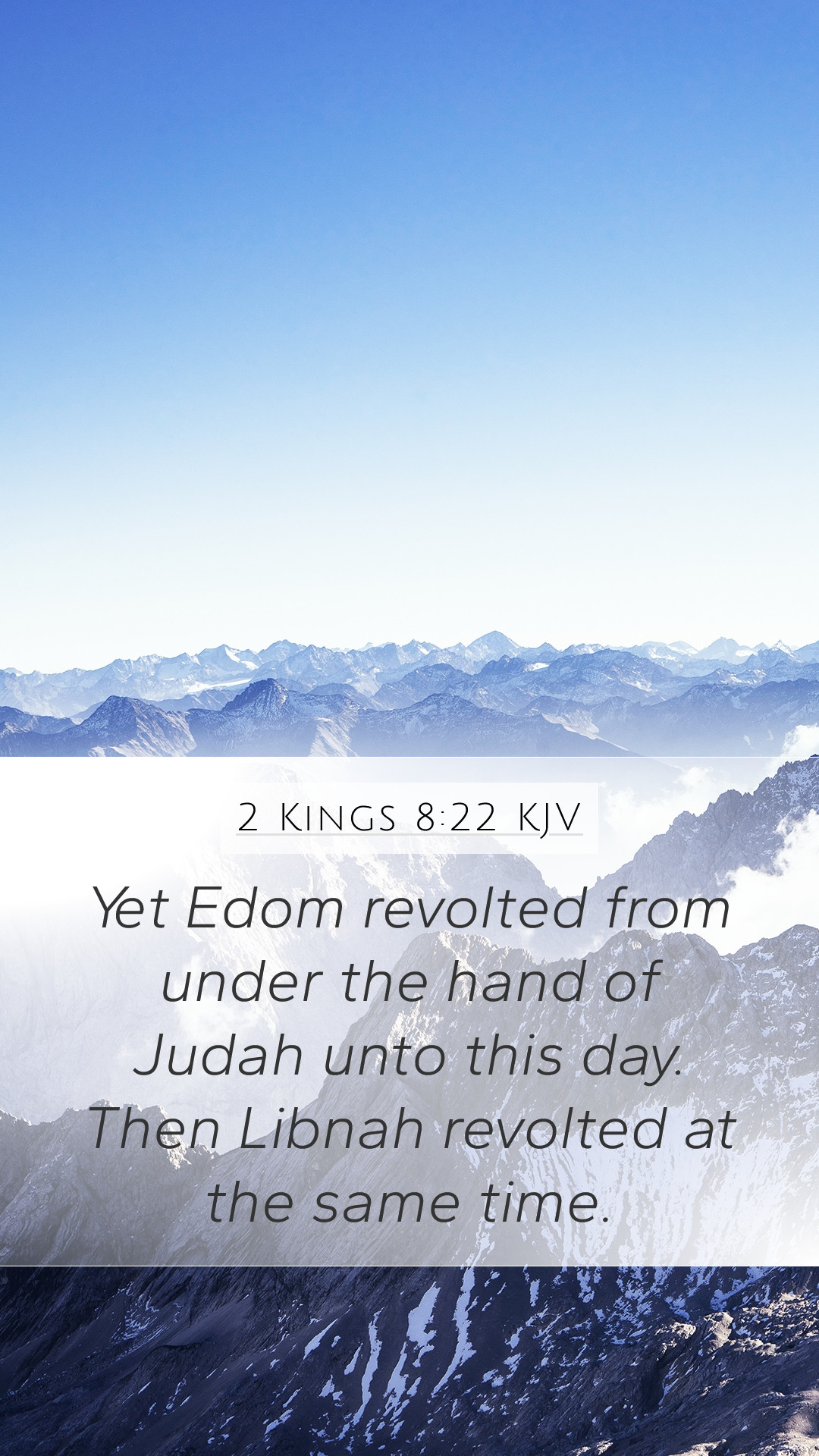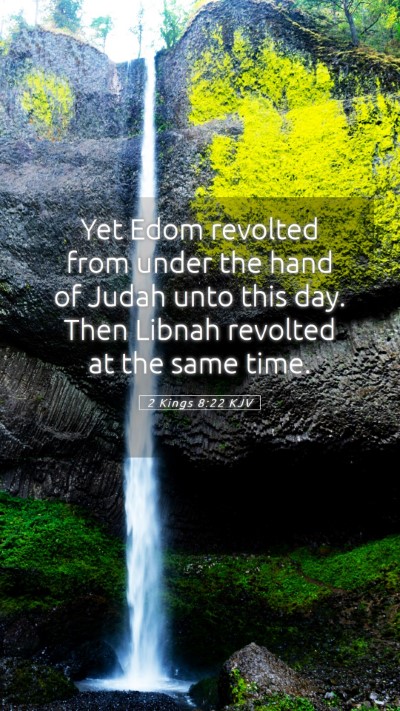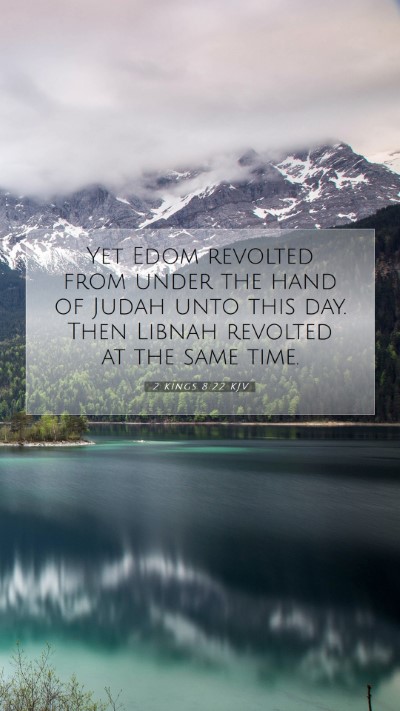Understanding 2 Kings 8:22
2 Kings 8:22 states, "Yet Edom revolted from under the hand of Judah unto this day. Then Libnah revolted at the same time." This verse holds significant historical and theological implications within the narrative of the Kings of Israel and Judah. Below is a comprehensive examination of this passage, drawing insights from public domain commentaries including those by Matthew Henry, Albert Barnes, and Adam Clarke.
Bible Verse Meanings
This verse indicates a turbulent point in the political landscape of the ancient Near East. Edom's revolt signifies a break from Judah's influence and reflects broader themes of rebellion and strife. The revolt against Judah is emblematic of the fractured relationships among nations during this period.
Bible Verse Interpretations
- Historical Context: The reference to Edom revolting points to ongoing conflict and the instability that plagued the region. Edom's desire for independence from Judah suggests a shift in power dynamics.
- Spiritual Implication: From a spiritual perspective, the revolt may symbolize humanity's tendency to stray from authority and governance, paralleling the spiritual rebellion against God found throughout scripture.
Bible Verse Understanding
Understanding this verse requires looking at the broader context of 2 Kings, where the consequences of idolatry, disobedience, and the desire for autonomy are prevalent themes. Edom's rebellion aligns with the pattern seen throughout the biblical narrative where God’s people often suffer due to their disobedience and lax adherence to His commandments.
Bible Verse Explanations
Albert Barnes explains that the revolt of Edom is a direct challenge to the authority of the King of Judah, illustrating the weakening of Judah’s hold over its territories. This is also a reflection of God’s judgment upon Judah for their unfaithfulness to Him.
Matthew Henry emphasizes that the revolts highlight the instability that arises when nations turn away from righteous leadership, suggesting that Judah's failure to uphold God’s standards led to political unrest.
Adam Clarke notes that this moment also includes a warning about the dangers of rebellion, emphasizing that the rebellion of Libnah as well signifies further divisive trouble within the kingdom during this tumultuous time.
Scripture Analysis and Biblical Exegesis
The analysis of this verse provides an opportunity for deeper exegetical study. The revolt of Edom and Libnah during the reign of King Jehoram illustrates key themes of prophetic fulfillment, the nature of alliances among the nations, and the overarching narrative of the consequences of forsaking God.
Further Themes in 2 Kings 8:22
- Political Independence: The desire of Edom for independence points to the larger movements of autonomy found within nations.
- Divine Judgement: The revolt can be viewed as a result of divine judgment against Judah's kingship, reinforcing the biblical principle that leadership requires accountability to God.
Bible Study Insights
For those looking to gain insights into this verse through Bible study groups or online Bible study, this passage serves as a reference point in discussions regarding God's sovereignty over nations.
In the context of Bible study tools, using commentaries and historical texts can aid in the understanding Scripture surrounding this time period, illuminating how ancient revolts still have implications today regarding authority and governance.
In-depth Analysis
- Historical Context of Bible Verses: 2 Kings serves to weave together the historical events of the Israelites amid tumultuous relationships with neighboring nations.
- Application of Bible Verses to Daily Life: Modern believers can draw parallels from these ancient conflicts to understand the importance of adherence to ethical leadership.
- Pastoral Insights: Churches can leverage teachings from this verse to address contemporary issues related to governance, rebellion, and unity within groups.
Cross References
- 2 Chronicles 21:8-10 - Details Jehoram's reign and the repercussions of his actions.
- Amos 1:11-12 - Prophecies concerning Edom's violence against the children of Judah.
- Isaiah 63:1 - Further discussion regarding the fate of Edom and its historical significance as an adversary.
Conclusion
In summary, 2 Kings 8:22 encapsulates significant political and spiritual lessons that resonate through scripture. It challenges us to understand the consequences of rebellion and the importance of remaining aligned with divine authority. Engaging with materials such as commentaries and bible study guides on this topic can deepen our comprehension of both the text itself and its implications for our faith today.


